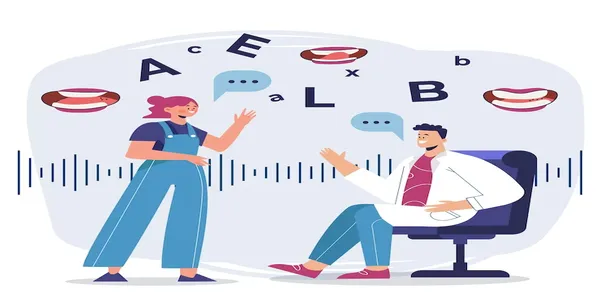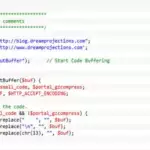Direct and Indirect Speech Rules, also known as reported speech, are an essential aspect of English grammar. It involves reporting someone else’s words, thoughts, or statements. Understanding the rules of direct and indirect speech is crucial for effective communication and accurate representation of someone’s speech. In this comprehensive guide, we will explore the rules of direct and indirect speech, examples, and important considerations.
Table of Contents:
|
- What is Direct Speech? It provides a direct representation of what someone said, allowing the reader or listener to experience the original speech firsthand. For example:
-
- John said, “I will attend the meeting tomorrow.”
- What is Indirect Speech? For example:
-
- John said that he would attend the meeting the following day.
- Key Differences between Direct and Indirect Speech: Direct speech and indirect speech differ in several aspects, including punctuation, verb tense changes, pronouns, and reporting verbs. The following table summarizes the key differences:
| Aspect | Direct Speech | Indirect Speech |
| Punctuation | Quotation marks | No quotation marks |
| Verb Tense | Preserved | May change |
| Pronouns | May not change | May change |
| Reporting Verbs | Not necessary | Required |
- Rules for Changing Direct Speech to Indirect Speech: Let’s explore the rules for different sentence types:
- 4.1 Statements: When reporting statements, the following changes occur:
-
- The pronouns, verb tenses, and adverbs may require changes based on the context.
- Direct Speech: She said, “I am going to the party.”
- Indirect Speech: She said that she was going to the party.
- 4.2 Questions: When reporting questions, the following changes occur:
-
- The word order of the reported question changes, becoming a statement rather than a question.
- The verb tense, pronouns, and adverbs may require changes based on the context.
- Direct Speech: He asked, “Are you coming with us?”
- Indirect Speech: He asked if/whether I was coming with them.
- 4.3 Commands and Requests: When reporting commands and requests, the following changes occur:
-
- The verb form changes to an infinitive or an -ing form.
- The pronouns and adverbs may require changes based on the context.
- Direct Speech: The teacher said, “Do your homework.”
- Indirect Speech: The teacher told us to do our homework.
- 4.4 Exclamatory Sentences: When reporting exclamatory sentences, the following changes occur:
-
- The verb tense, pronouns, and adverbs may require changes based on the context.
- Direct Speech: She exclaimed, “What a beautiful view!”
- Indirect Speech: She exclaimed that it was a beautiful view.
- Punctuation Changes in Indirect Speech: In indirect speech, certain punctuation changes occur:
-
- Commas, question marks, and exclamation marks may require changes based on the reported speech.
- Direct Speech: He said, “I love this book!”
- Indirect Speech: He said that he loved that book.
- Changes in Verb Tenses in Indirect Speech: In indirect speech, verb tense changes may occur based on the reporting verb and the context. The following general rules apply:
-
- Present simple changes to past simple.
- Present continuous changes to past continuous.
- Present perfect changes to past perfect.
- Past simple remains the same.
- Direct Speech: She said, “I have already finished my homework.”
- Indirect Speech: She said that she had already finished her homework.
- Changes in Pronouns and Adverbs in Indirect Speech: In indirect speech, pronouns, and adverbs may require changes to reflect the reported speech correctly. The following changes occur:
-
- Pronouns may change based on the subject of the reported speech.
- Adverbs of time and place may change based on the context.
- Direct Speech: They said, “We will meet here tomorrow.”
- Indirect Speech: They said that they would meet there the next day.
- Reporting Verbs in Indirect Speech: The choice of reporting verb can convey the speaker’s attitude, opinion, or intention. Common reporting verbs include:
-
- Said, told, asked, exclaimed, inquired, wondered, etc.
- Direct Speech: She said, “I will come to the party.”
- Indirect Speech: She mentioned that she would come to the party.
- Exceptions and Special Cases in Direct and Indirect Speech: In certain cases, exceptions and special rules apply to direct and indirect speech. These include reported thoughts, imperatives, time expressions, and conditionals. It’s essential to understand these exceptions to accurately report the speech.
- Practice Exercises for Direct and Indirect Speech: To enhance your understanding and proficiency in direct and indirect speech, practice exercises are highly beneficial. Solving exercises will help you apply the rules and develop confidence in transforming sentences from direct to indirect speech.
- Tips for Mastering Direct and Indirect Speech: To excel in using direct and indirect speech, consider the following tips:
-
- Familiarize yourself with the rules and practice regularly.
- Pay attention to verb tense changes, pronoun changes, and reporting verbs.
- Read and analyze examples to strengthen your understanding.
- Seek feedback and guidance from teachers or language experts.
- Common Mistakes to Avoid in Direct and Indirect Speech: These include:
-
- Incorrect verb tense changes.
- Inconsistent pronoun usage.
- Misplacement of reporting verbs.
- Incorrect punctuation usage.
- Importance of Direct and Indirect Speech in Communication: Direct and indirect speech plays a vital role in effective communication. By accurately reporting someone’s words or thoughts, we maintain clarity and integrity in conveying information. It allows us to share conversations, thoughts, and ideas while maintaining context and meaning.
- Real-Life Examples of Direct and Indirect Speech: Here are a few examples:
-
- Interviewer: “Tell me about your qualifications.” Direct Speech: The interviewer asked, “Tell me about your qualifications.”
- News Report: “The president said, ‘We will prioritize education reform.'” Indirect Speech: The news report mentioned that the president had stated they would prioritize education reform.
- Conclusion: Direct and indirect speech form an integral part of English grammar. By following the rules and understanding the nuances of transforming speech, you can effectively report someone’s words or thoughts. Practice, consistency, and attention to detail will help you master the art of direct and indirect speech, enhancing your communication skills and linguistic proficiency.
Direct and Indirect Speech Rules Faqs:
Direct and indirect speech rules explain how to report someone's words or thoughts in a conversation or narrative.
To change direct speech into indirect speech, you usually need to adjust the tense, pronouns, and other words according to specific rules.
Learning direct and indirect speech rules is crucial for effective communication, accurate reporting, and enhancing language skills.
Yes, there are some exceptions and special cases that require specific modifications in the reported speech.
Direct speech presents someone's exact words, while indirect speech provides a reported account of what was said.
Sure! Examples of direct speech include I love pizza, He said, I will be there tomorrow, and She asked, Can you pass me the salt?
Direct speech is usually enclosed in quotation marks, while indirect speech does not use quotation marks but reports the original words.
Common reporting verbs used in indirect speech include saying, tell, ask, command, reply, and inform.
Certainly! For example, He said, I am going to the store changes He said that he was going to the store.
Yes, in indirect speech, questions often change in word order and verb tense to fit the reporting structure.
Reporting verbs in indirect speech often requires changes in tense, such as say changing to said or tell changing to tell.
Yes, punctuation plays a crucial role in differentiating direct and indirect speech, so it's essential to use it correctly.
Yes, in indirect speech, imperatives are usually changed into infinitives or expressions of request or command.
Reported questions are questions that are reported or narrated by someone other than the original speaker.
Changing direct speech into indirect speech allows us to report conversations, interviews, or statements made by others accurately.
Yes, indirect speech rules apply to all tense forms and require appropriate adjustments in the reported verb.
Certainly! For example, She said, I have completed my homework changes to She said that she had completed her homework.
Pronouns in indirect speech often change according to the perspective of the reporting speaker or narrator.
Backshift refers to the change in tense that occurs when transforming direct speech into indirect speech.
Practicing direct and indirect speech involves identifying and transforming examples of direct speech into indirect speech.
Common errors in direct and indirect speech include incorrect tense changes, misuse of pronouns, and improper punctuation.
While memorizing the rules can be helpful, with practice and understanding, you can apply them naturally without strict memorization.
Improving your understanding of direct and indirect speech rules involves studying examples, practicing exercises, and seeking clarification when needed.
Yes, there are numerous online resources, tutorials, and exercises available to help you learn and master direct and indirect speech rules.
Certainly! A step-by-step guide includes identifying the tense, pronouns, reporting verbs, and making the necessary adjustments accordingly.
Conjunctions like that, if, or whether are often used to introduce indirect speech and connect the reported words with the reporting clause.
Yes, reported questions in indirect speech often change in word order, use of question words, and verb tense.
To avoid confusion, it's important to pay attention to the context, quotation marks, and appropriate reporting verbs.
Reported commands are statements that convey orders, requests, or suggestions made by someone in the original speech.
Mastering direct and indirect speech rules enhances your communication skills, enables accurate reporting, and contributes to effective written and spoken language. What are direct and indirect speech rules?
How do I change a direct speech into an indirect speech?
What is the importance of learning direct and indirect speech rules?
Are there any exceptions to direct and indirect speech rules?
What is the difference between direct and indirect speech?
Can you provide some examples of direct speech?
How do I identify direct and indirect speech in a sentence?
What are the common reporting verbs used in indirect speech?
Can you give an example of changing a direct speech into an indirect speech?
Are there any specific rules for reporting questions in indirect speech?
How do I handle reporting verbs in indirect speech?
Is punctuation important in direct and indirect speech?
Are there any rules for reporting imperatives in indirect speech?
Can you explain the concept of reported questions?
What is the purpose of changing direct speech into indirect speech?
Do indirect speech rules apply to all tense forms?
Can you provide some examples of changing direct speech into indirect speech?
What is the role of pronouns in indirect speech?
Can you explain the concept of backshift in indirect speech?
How can I practice direct and indirect speech rules?
What are the common errors to avoid in direct and indirect speech?
Is it necessary to memorize all the direct and indirect speech rules?
How can I improve my understanding of direct and indirect speech rules?
Are there any online resources for learning direct and indirect speech rules?
Can you provide a step-by-step guide for transforming direct speech into indirect speech?
What is the role of conjunctions in indirect speech?
Are there any differences between direct and indirect speech in reported questions?
How can I avoid confusion when using direct and indirect speech?
Can you explain the concept of reported commands in indirect speech?
What are the benefits of mastering direct and indirect speech rules?
To know more about Education Information.





